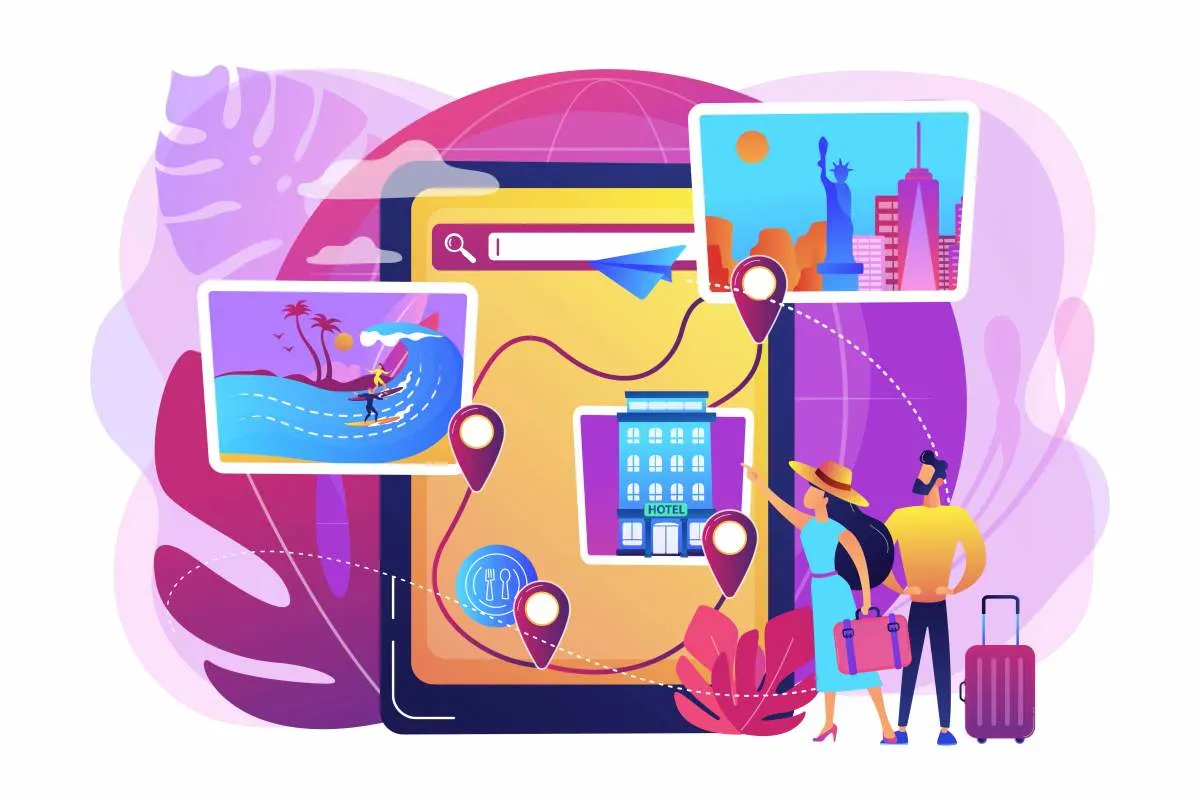Planning a trip is exciting—but also a bit overwhelming. Flights, hotels, activities, restaurants… it adds up fast. That’s where AI trip planners step in. They promise to do all the hard work for you in seconds. But how accurate are AI-generated travel itineraries, really? Let’s break it down.

AI travel planners are smart tools designed to build custom itineraries. All you have to do is enter your destination, travel dates, and preferences. The AI takes over, delivering a ready-to-go plan. It might include where to stay, what to see, when to go, and even where to eat.
Sounds perfect, right?
But is it too good to be true?
Let’s start with the good stuff. AI-generated travel itineraries generated by apps like Travelfika are super fast. No hours of scrolling through blogs or travel forums. The plan pops up in seconds. That’s a huge time-saver.
These tools also do a solid job at covering the basics. You’ll likely get top-rated attractions, famous restaurants, and well-known landmarks. For travelers who like a straightforward list of “must-sees,” AI itineraries can really help.
They also help with efficiency. Some AI travel planners map out your days so you’re not crisscrossing the city. For example, they’ll suggest exploring museums and shops in the same area, rather than having you zig-zag across town.
Another win? Many AI trip planners include Google Maps links, estimated times, and travel tips. Some even consider weather and opening hours. That’s pretty impressive.
Know About: How to Plan Your Next Vacation with AI
Now for the not-so-great parts.
AI tools work with the data they’re trained on. That usually means popular places and well-known tourist spots. If you're looking for hidden gems, local hangouts, or offbeat experiences, the AI may miss the mark.
Many AI travel planners also struggle with context. Let’s say you’re traveling with kids. The AI might still suggest cocktail bars or adult-only shows. Or maybe it doesn’t understand that you hate museums, even though you checked “culture” as an interest.
AI itineraries can also lack the human touch. They don’t always know what’s trending in real-time. A food stall that closed last month might still appear on your list. And don’t expect restaurant picks based on recent local buzz—AI may not be up to date on that.
Another thing: they can be too packed. Some AI-generated travel itineraries try to squeeze too much into a day. You might end up rushing from place to place, with no time to breathe, snack, or just explore.
Read More: What Does a Travel Planner Do?
It depends. For major cities like Paris, Tokyo, or New York, AI trip planners usually do a decent job. They have access to a ton of information, reviews, and routes.
But for smaller towns or less-touristy destinations, the AI might come up short. In some cases, the tool might suggest places that don’t even exist anymore or that are way too far apart to be practical in a single day.
Also, not all AI travel planners consider visa rules, local holidays, or cultural differences. You could land on a plan that sends you to a closed market or schedules a hike in monsoon season.
In short: AI itineraries are pretty accurate—about 70 to 80% of the time. They're great for getting started. They’ll give you a solid framework, especially if you're heading to a big city or popular tourist area.
But don’t rely on them blindly.
Always cross-check a few details. Check opening hours, look at current reviews, and make sure the places still exist. Add a bit of personal research, and your AI-made plan will get a whole lot better.
Read Related: Best AI Travel Planning Startups to Watch in 2025
AI travel planners shine when:
But they might not work well if:
AI-generated travel itineraries are a game changer—when used the right way. They’re fast, organized, and a great starting point. But like any tool, they have limits. The smartest move? Use them to build a strong travel foundation, then layer in your own flavor.
So next time you're planning a getaway, give an AI travel planner a try. Just don’t forget to pack a little curiosity, a touch of flexibility, and a dash of human instinct.
That’s the secret to turning a good trip into a great one.
Get updates, exclusive deals, insider tips & special offers—straight to your inbox!
 USA: +1 (415) 718-2654
USA: +1 (415) 718-2654 IND: +91 9629929970
IND: +91 9629929970